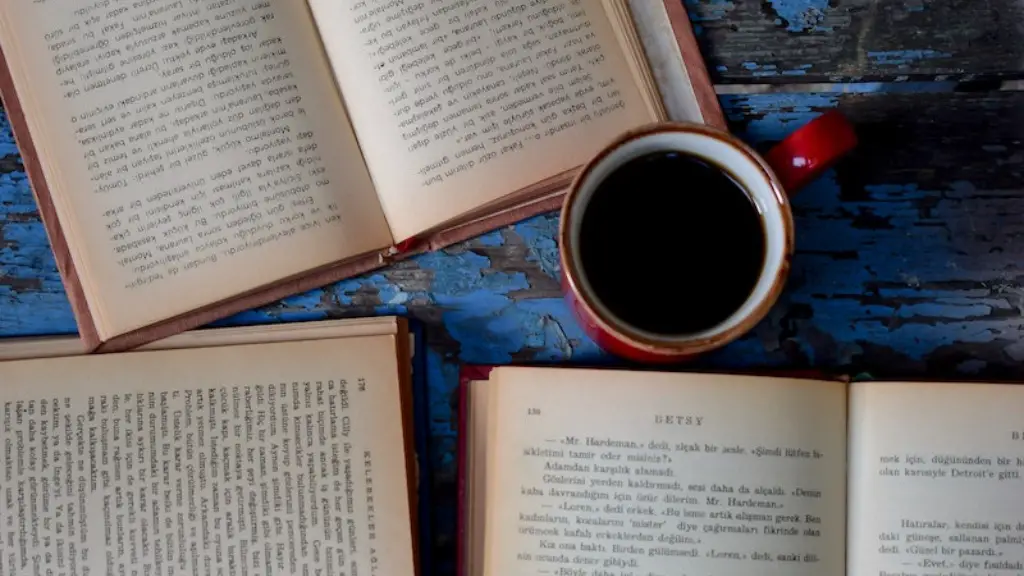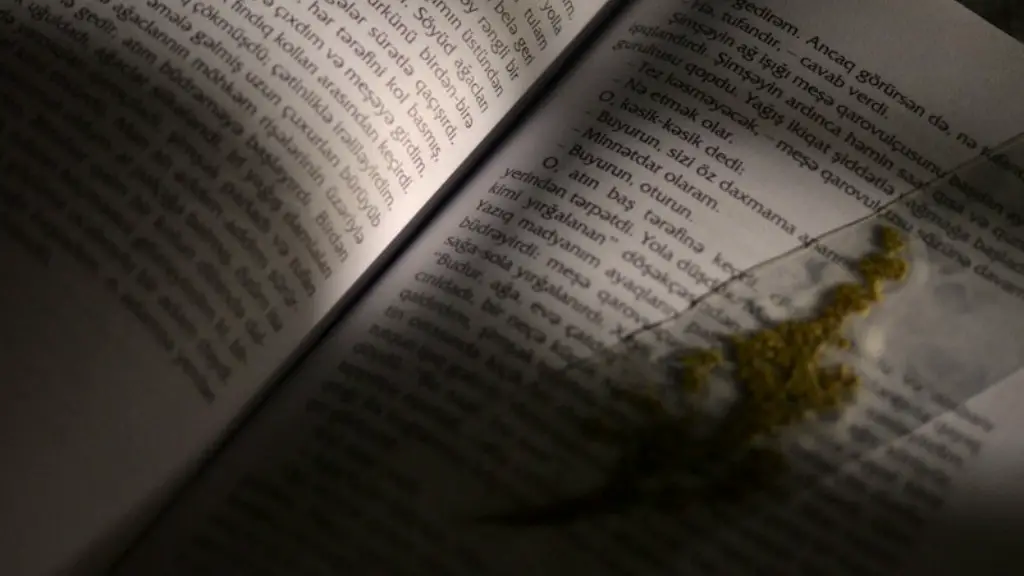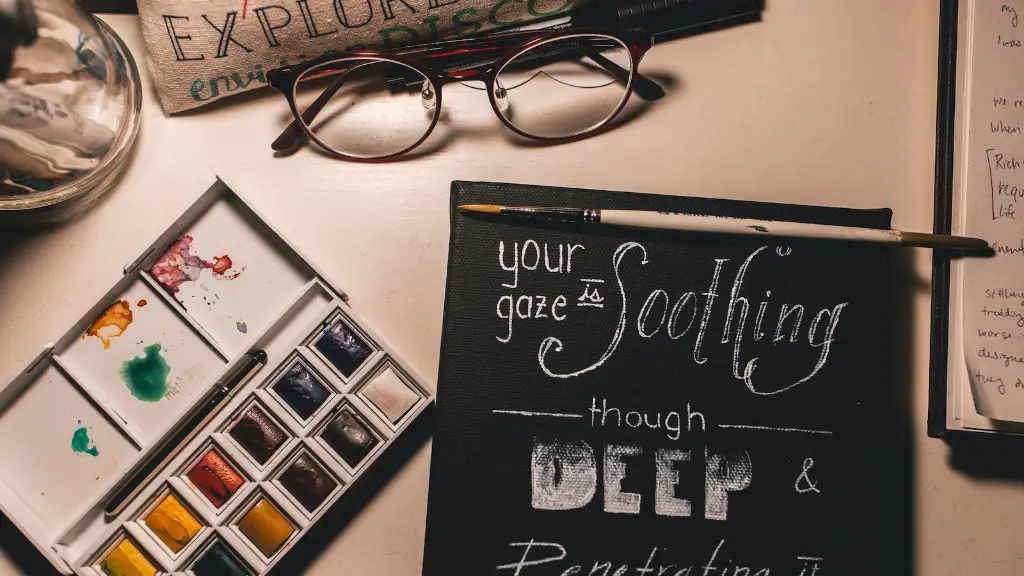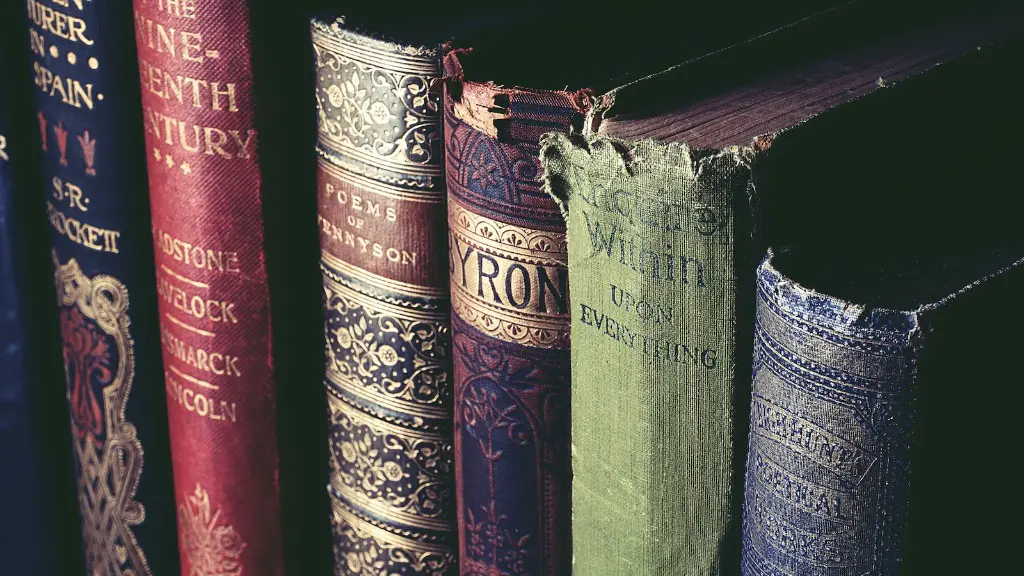Religious poetry is a type of poetry which seeks to explore the spiritual and transcendental. In religious poetry, the poet is often seeking to express something higher than the physical world in its words and lines. The spirit or soul of the poet is the source of inspiration, guiding the poet’s words to an understanding of the divine or religious truths. Religious poetry can be found in different forms and expressions – from the ancient tribal folklore to the modernist experimental forms. It can even take the form of praise and worship litanies, as can be seen in many faiths. While it is not easy to define exactly what is and is not religious poetry, it is helpful to remember that it is an expression of something intangible and ethereal that resonates with a sense of spiritual truth.
An important aspect to consider when discussing religious poetry is that it is not strictly limited to writings of a particular religion. Across the major religions of the world, it is possible to find poets who are deeply connected to the spiritual core of their faith and seek to express something of that core in their poems. For example, Christianity, a religion based on a strong belief in God, has produced many religious poets such as St. Teresa of Avila, William Blake and George Herbert in the past. Similarly, Sufi poets of Islam, such as Rumi or Attar, wrote lengthy poems about the divine and eternal, attempting to get to that perfect union with God.
On the other hand, religious poetry is not only concerned with the major world religions. It is also found in folk literature and other forms indigenous to particular parts of the world. In certain African cultures, for example, poetry is part of the oral tradition and usually centres around religious concepts such as traditional beliefs, rituals and taboos. Poems in such traditions often serve to instruct and edify, as opposed to attempting to capture lofty spiritual truths. This does not, however, make them any less religious; rather, it speaks to the fact that religious poetry can take many forms, depending on its geographical and cultural context.
Moreover, religious poetry need not take a specific religious or spiritual form per se. Poets such as Walt Whitman and Robert Frost were not in any way formally affiliated to a religious system, but their works often touch upon spiritual or metaphysical themes. For example, Whitman’s odes to nature and humanity are often seen as his attempt to connect to something higher and larger than himself, while Frost often grapples with the ambivalence of mankind’s place in the natural world. Thus, it seems, poetry does not always have to be explicitly religious to be spiritual.
Finally, religious poetry is not limited to any one language, or any one historical period. One can find religious poetry in the many languages of the world, as well as in translations and adaptations of ancient works. What is interesting, however, is that much of religious poetry has stood the test of time and is still read and appreciated today. Be it the Vedas of ancient India, or the Psalms of the Bible, religious poetry has remained a staple of many cultures and civilizations, a testament to the power of faith and the ability of poetry to express that faith.
Nature of Religious Poetry
Religious poetry may be seen as a type of prayer, in that it is an acknowledgement of a higher power or spirit and is meant as an offering or tribute. Many of the greatest religious poems, such as those of Rumi or Blake, are meant to serve as an expression of gratitude and love, or as a plea for understanding and connection. For some, religious poems are a way of deepening one’s faith, while for others they may be an invitation to explore and question existing beliefs.
Religious poetry may also be seen as a form of meditation, a way of examining and reflecting on one’s ideas about the divine and eternity. Poetry allows for contemplation of the deepest mysteries and questions of faith, as it does not require that the poet explain or even fully comprehend the reality that he or she is exploring. Poetry, in this way, acts as a space for open ended and often difficult reflection.
Similarly, many religious poets have sought to use their poem as a way of transcending the everyday physical world and entering into a realm of spiritual connection. Religious poetry, in this case, may take on the form of a hymn or an invocation, expressing a profound reverence and love for the divine in its words. Such poetry, if successful, can evoke powerful emotion and serve as an opening towards a sense of oneness with the spirit.
At the same time, religious poetry is not always a form of adulation or worship. A good many religious poems, such as those of the Old Testament psalms, also act as expressions of doubt, suffering and even anger. In such poems, there is often a tension between the beliefs of the poet and the realities of life. Such poems may be seen as explorations of faith, rather than an expression of it, as the poet struggles to make sense of the discrepancy between his beliefs and his experience of life.
Religion and Poetry
The relationship between religion and poetry is a deep and multifaceted one. Poetry has often been seen as a sacred act in many cultures, and religious poetry may be seen as the ultimate expression of this belief. In pre-modern societies, for example, it was common for scribes and poets to be skilled in both religious writings and secular verse. Indeed, it was often seen that a poet’s ability to capture and express the divine was inseparable from their general poetic talent.
Nowadays, however, the relationship between religious beliefs and poetry has gone through significant changes. The advent of modern science and technology has in many ways shifted the nature of faith, and with it the meaning of religious poetry. It can be argued that religious poetry has, in some ways, been superseded by more scientific and empirical modes of understanding the world. While this does not make religious poetry any less potent, it does make it likely that it will no longer be the source of spiritual nourishment or consolation that it once was.
At the same time, however, religious poetry remains an important part of many cultures and faith systems. Even in underdeveloped countries where the literacy rate is low, religious poetry often serves as a source of spiritual sustenance and guidance to many. In this way, then, religious poetry can still be seen as a powerful and meaningful expression of faith and devotion. Moreover, it may be argued that there is something sacred in religious poetry itself, something deeper and more essential than can be formulated in the narrower forms of science and reason.
Philosophy and Theology of Religious Poetry
In terms of its philosophical and theological content, religious poetry is often seen as an attempt to bridge the gap between the physical and the spiritual, or between man and the divine. In many cases, religious poems and hymns attempt to answer the ultimate questions about the human condition, asking questions about the nature of man’s existence, the purpose of life, and the ultimate destination of the soul.
In other words, religious poetry may be seen as a way of attempting to reconcile the earthly and the heavenly, or the physical and the spiritual. This is where a poet’s religious or spiritual inspirations really come into play, as they seek to create a synthesis or harmony between the tangible world and the intangible spirit. This is not to say that religious poetry is one-sided or biased towards one type of understanding – rather, many religious poems are open-ended explorations of the same theme, without necessarily coming to a conclusion.
Moreover, religious poetry often raises questions and debates which have been a source of contention between many religious and spiritual systems. For example, many religious poems seek to explain the nature of suffering and why certain things happen to certain people. Such questions are generally related to the idea of free will, causation, and the existence of a God who is both benevolent and punitive. Other questions which religious poetry attempts to tackle relate to the nature of death and the afterlife, or to the ultimate destiny of man.
Contemporary Religious Poetry
As one of the oldest known forms of poetry, religious poetry continues to thrive in the present day. Many contemporary poets, regardless of their religious beliefs, continue to write and explore spiritual themes, if in a more abstract or individualistic way. Such works, often referred to as ‘metaphysical poetry’, are distinct from traditional religious poetry, but may nevertheless be seen as a form of religious exploration. Similarly, more devotional and traditional poets may also be found in cultures all across the world, often drawing upon the same ancient wellsprings of faith and inspiration that have provided so much nourishment to their predecessors.
Like the ages before it, the present day is filled with religious poetry, and this is likely to continue for many years to come. Such poetry often serves as a reminder that, no matter how uncertain the times may be, faith and spirituality will always be a source of solace and renewal. In this way, religious poetry may be seen as a form of testimony, both to the faith and to the resilience of humanity.
Modern Religious Poetry Movement
The rise of the modern spiritual poetry movement may be seen as a response to the shift in religious beliefs that occurred in the 20th and 21st centuries. This movement has sought to provoke a deeper exploration of personal faith, spirituality, and the metaphysical aspects of life, often through the medium of poetry. This new form of religious poetry is often abstract and highly individualistic, as it seeks to explore the particular experiences of the poet, rather than express any overarching belief system. Such works may be seen as a type of literary exploration, where the poet seeks to unpick and re-examine the foundations of his or her faith.
At the same time, one may also find many contemporary poets who are focused more on the devotional side of their faith and seek to express their love and devotion to a higher power. Similarly, one may find a range of religious poets pursuing a more utopian purpose, attempting to create a world which is more harmonious and peaceful. The common factor between these various forms of religious poetry, however, is that they are still rooted in a faith-oriented form of self-expression, exploring and expressing a spiritual or metaphysical truth.
Influence of Religious Poetry on Society
Religious poetry can often be seen as having a profound effect on society. Such works may draw attention to important ethical principles and values, and often act as a voice of conscience in times of trouble and despair. Religious poets such as William Blake or Mahatma Gandhi, for instance, used the power of their words to express their beliefs and galvanize their followers in the face of injustice and social oppression. In this way, religious poetry may be seen as an essential form of expression in a trying world.
Moreover, religious poetry may be seen as a form of education, in that it often seeks to instruct and point towards a wisdom which transcends physical knowledge. By exploring the human spirit and its relationship to the divine, religious poets are able to create works which ask the most difficult questions and provoke deeper reflections about the nature of existence. In this way, the devoted poet may hope to gain insight into the eternal mysteries, and impart his or her knowledge to others through their work.
Finally, one may point out that religious poetry is often a source of comfort and security for many people. In a world which is often fraught with danger and suffering, religious poetry may be seen as a form of hope and serenity. In this way, religious poems which celebrate and praise the divine, or which seek to bring about a sense of peace and understanding, will always be a source of courage and security for many.





